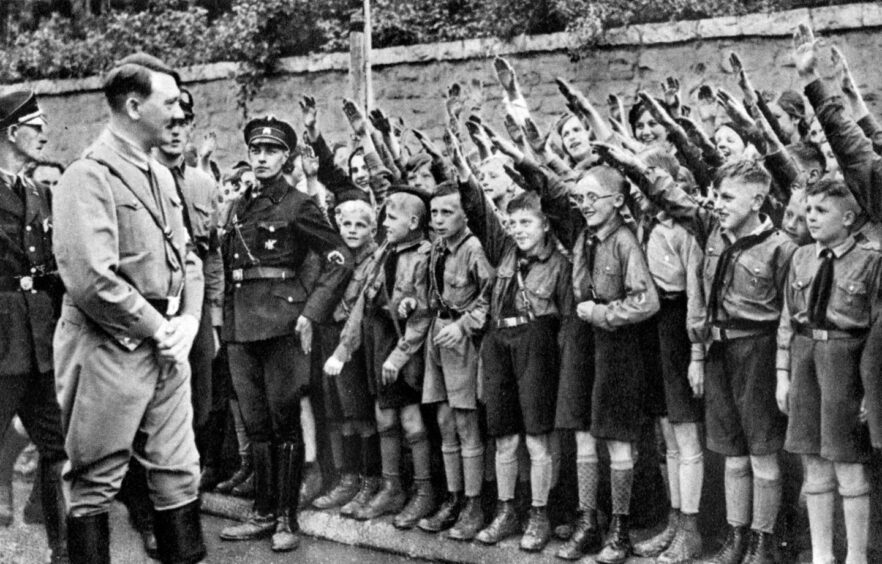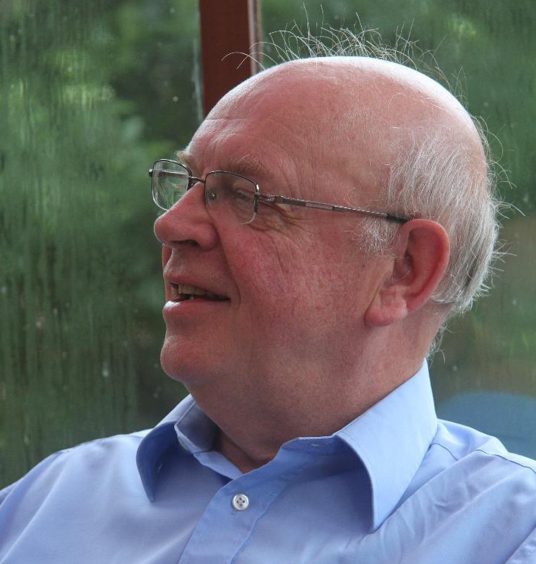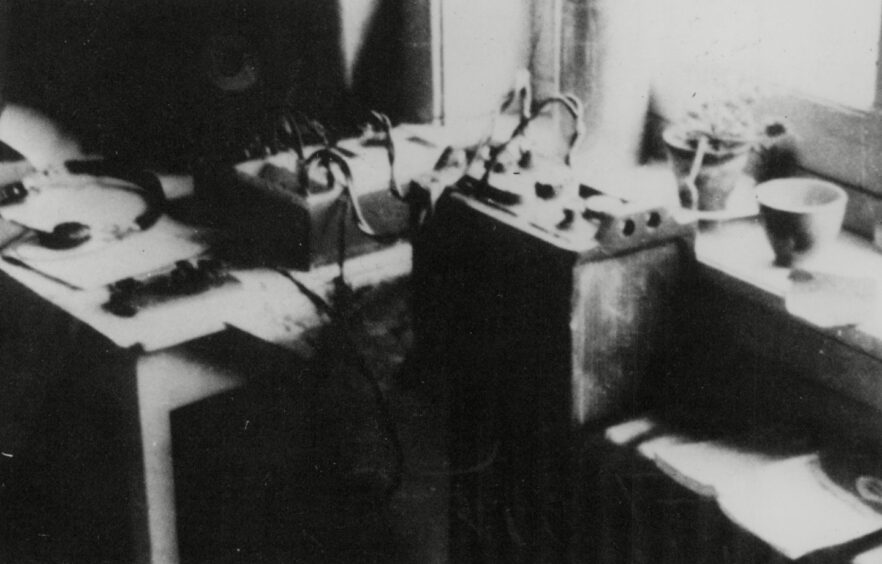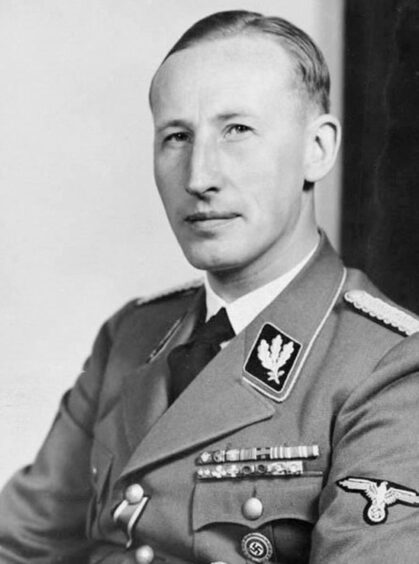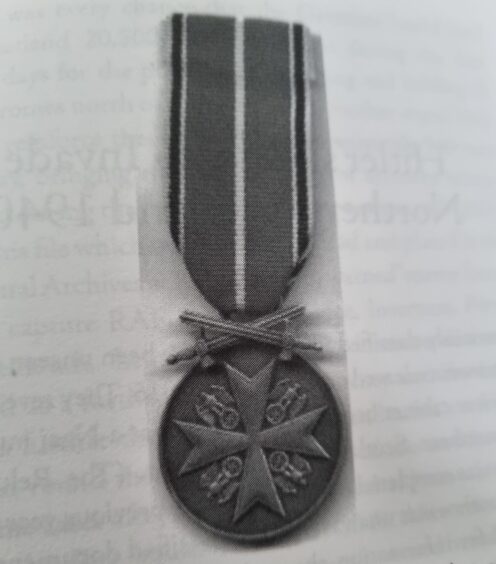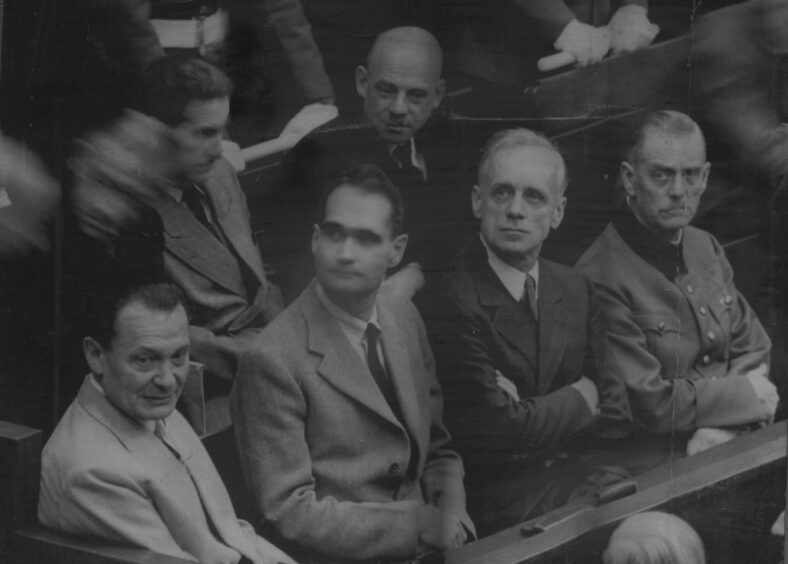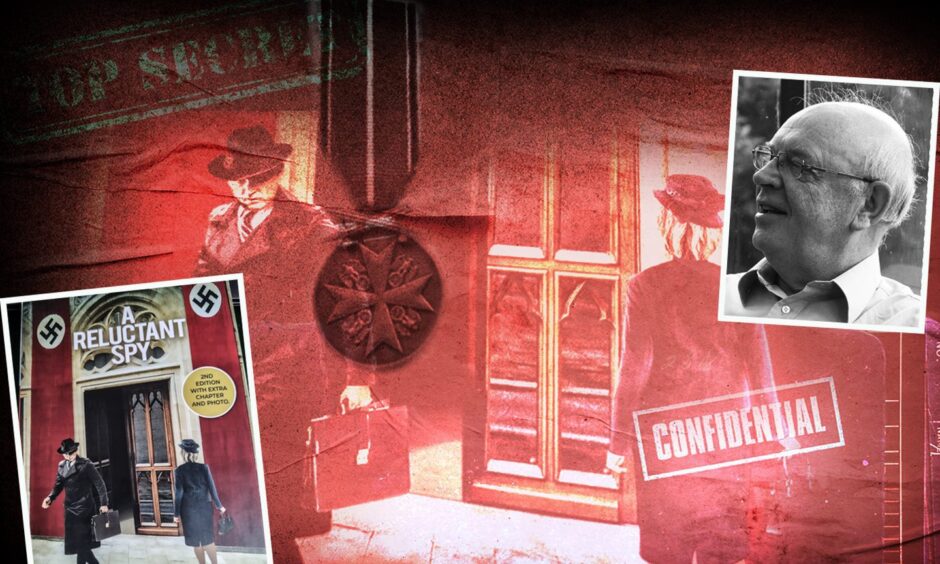
It’s 1938 in Hamburg, febrile times, with the world on the brink of war, and an Elgin woman has been living a quiet life in the city with her doctor husband Willy Richter and young son Otto, giving private English tuition.
Everything changed that year for Hilda Richter, nee Campbell, then in her late forties.
Her life is turned upside down by the death of her husband.
But things would get a lot worse, and much, much more dangerous for Hilda.
Elgin woman was approached by Gestapo
She is approached by a Gestapo officer with a demand —to spy for Germany when she goes home to Elgin to look after her ailing parents.
The officer who approaches her is Gerhardt Eicke, her son Otto’s trainer in the Hitler Youth.
He knows she is a native English speaker with roots in the north of Scotland, and this makes her very useful to the Nazis.
The threat in his tone is unmistakable, Hilda is being given no choice but to go along with his demands.
She heads home to Elgin, but on her arrival by boat in Aberdeen she is arrested by two men from British security forces who have heard of her spy mission and initially take her for a traitor.
However, she convinces them of her loyalty to Britain, and is then recruited by MI6 as a double agent.
Hilda becomes the Reluctant Spy at the heart of her great-great-nephew Miller Caldwell’s fictionalised account of her war years.
Miller only met Hilda once, in 1956 when he was four, two years before her death.
He had heard of Hilda’s extraordinary life and had written some of it into a previous book, Operation Oboe.
But Miller’s uncle had all the facts for the whole story
He said: “But my uncle, Dr Stanley Caldwell told me it wasn’t right, and that he had all the information.”
That was a game-changer for Miller.
“Stanley had been down to see Hilda in the Cotswolds where she and her husband had retired, and she gave him the whole story, which he passed on to me, and that’s how I came to write A Reluctant Spy.”
His version, written in novel form, from Hilda’s point of view, is ‘92% accurate’, he says.
Here’s how the story goes…
Sinister German handlers
Hilda travels home to her parents’ hotel in Elgin, to find her father seriously ill after a stroke, and her mother struggling.
She meets the sinister Mr and Mrs Brown, her German handlers in Scotland, and at great risk, her new British handlers, Mr Dynes and Mr Thornton.
The Browns give her a book of instructions and codes and a wooden box containing a radio she keeps hidden under her bed.
It’s hard to overstate the danger Hilda was in at that volatile, nervous time.
The radio could easily have been discovered, and Hilda shopped by a guest or a member of staff.
And she could easily have been caught off-guard by Mr and Mrs Brown and inadvertently given the game away.
Hilda was nobody’s fool
But Hilda was smart.
She had studied modern languages at Aberdeen University, specialising in French and German.
As Miller says: “If she had gone to France during her studies, none of this would have happened, but she went to Germany to further her knowledge of the language and culture.
“There she met Willy, and they married in 1913.”
This life choice brought Hilda to this moment, receiving instructions from Eicke to spy on troop movements in the highly strategic north of Scotland, and relay them to the Nazis, while also reporting back to her British handlers.
Hilda face to face with SS butcher Heydrich
Eicke abruptly orders her back from Elgin to Hamburg for spy training.
It’s at this point that Hilda meets one of the most sinister figures of the Nazi SS, Reinhard Heydrich.
He would turn out to be one of the architects of the Holocaust, and was known locally as The Hangman, or the Butcher of Prague.
His parents knew and respected Hilda’s late husband, he says, and he has come to show Hilda the Reich’s appreciation of her services.
To her horror, he awards her the German Eagle Civilian Medal, securing it around her neck himself.
All Hilda can do is respond with an enthusiastic “Heil Hitler!”
But as she pauses outside the room to tie her shoelace, Hilda hears Eicke question the award, and Heydrich respond that she needs an incentive to stay German.
“Once back in Britain, she must not lapse,” the Blond Beast said.
After spy training, Portugal
Hilda acquits herself well in spy training and is sent to neutral Portugal to carry on her spy mission, intercepting enemy code and transmitting it to her handlers.
At one point she sends back a set of figures to Berlin, figures which she can make no sense of.
When she realises she has passed on co-ordinates which enabled a U-boat to sink the passenger line SS Athenia, she is filled with remorse and horror and resolves to escape from her situation.
Fakes own death
This she does by faking her own death in the Atlantic, and fleeing under cover of darkness to the British Embassy in Lisbon.
Having proved her credentials and loyalty back in Britain, she’s sent to Bletchley Park to carry out more spy work. And having signed the Official Secrets Act, she would never talk about it.
Meets man she would later marry
Happily, at that time she met widower Sir Francis Simpson, whom she would later marry.
But there was plenty of tragedy ahead when Hilda returned to Hamburg after the war to find her son Otto had been killed, along with many other loved ones.
Her house was in ruins, as was most of the rest of the city.
She hears that Eicke was responsible for the ‘cleansing’ of the Jewish population of Hamburg.
Hilda must give evidence at Nuremburg
He is arrested for crimes against humanity, but before Hilda can move on with her life she is summoned to testify at the Nuremburg trials and must face him in court.
Here, her testimony hangs in the balance as Eicke accuses her of being an imposter, having allegedly drowned in Portugal.
She then reveals, to gasps in court, that she was a double agent, working for the Allies.
After many anxious moments, Eicke is found guilty and sentenced to death by hanging.
Hilda and Francis marry
Hilda and Francis married, and spent five years in Helsinki before Sir Francis was appointed ambassador to Iran from 1950-52.
Their final posting was to Warsaw where Sir Francis was British Ambassador from 1952-54.
Hilda died in 1956, and Sir Francis in 1961.
To this day, Miller doesn’t know the true identify of Gerhardt Eicke.
Who was Gerhardt Eicke?
He said: “There were two particular SS men responsible for clearing Hamburg of the Jewish population, Rudolf Querner and Georg Hanning Graf von Bessewitz.
“Von Bessewitz died in 1949 as a prisoner of war at Magadan in Russia. Querner was detained in Magdeburg where he cheated his death by suicide.”
A Reluctant Spy is to be made into a documentary by French company ARTE.
Read more about Miller and his work here.
You can find A Reluctant Spy here.
You might enjoy:
How a Cruden Bay farmer’s wife welcomed enemy submariners with a cuppa in 1945
